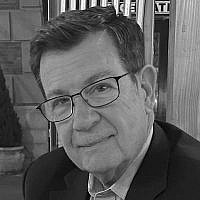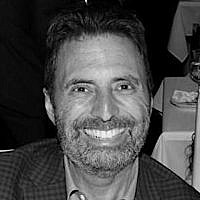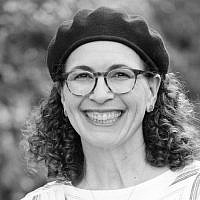Reconstructionist Judaism’s Unfinished Work
I am a religious naturalist. I do not believe that Judaism is supernaturally revealed. The Torah is not the final word, but the beginning of a conversation that continues even today. Judaism is what the Jewish people do and hope; it is our memories and our imagination. Judaism is, for me, a most meaningful and fulfilling way of growing as a human being in mind and spirit. Judaism grounds me in the rich and diverse history and experience of the Jewish people. I am inspired by its moral values and adorned by holy traditions that reveal the godly in our personal and communal lives and point to the possibilities of a better world. Religions in general and Judaism, in particular, are about unfinished work.
I was ordained by the Reconstructionist Rabbinical College (RRC), along with my wife, Sandy Eisenberg Sasso. She was the first woman ordained by the movement and we, the first rabbinical married couple in world history. We were part of the RRC’s second commencement, the Class of 1974. Back in the late 60’s and early 70’s, ours was an idealist Hevra animated by a spirit of daring and innovation who had chosen a maverick school for rabbinic training. We were inspired by a love of the Jewish people and its religious civilization, by a commitment to Zionism as an expression of those values, by dedication to Judaism in the key of religious naturalism. We were universalists in outlook, but we entered the universal from our particularity as Jews. These were the values and premises upon which the early graduates of the College founded the Reconstructionist Rabbinical Association (RRA) in December of 1974.
Today, there is a deep feeling among many graduates and students of the RRC that the values of Jewish peoplehood, Zionism, religious naturalism, and civilizational understanding of Judaism that informed the religious project that Rabbi Mordecai M. Kaplan and his disciples inspired and modeled are unfortunately not core components of the culture of the College and many in the movement at large.
All the movements in Judaism are going through reexamination, reevaluation, and exploration of what their core values are for the 21st century. Certainly, Reconstructionism is about evolution and renewal. But even as we breathe new ideas and bring new concerns into the movement, we would be diminished if we were to fail to relearn and renew the rich heritage of Rabbis Mordecai Kaplan, Ira Eisenstein, Jack Cohen, Eugene Kohn, Milton Steinberg, and other pioneering founders of Reconstructionism.
The Movement that was inspired by these luminaries who helped to shape modern Judaism is now accepting and graduating some students with little commitment to the civilizational, peoplehood, and philosophic values that have historically identified Reconstructionist Judaism. The handful of pro-Israel students currently enrolled at the RRC confess to experiencing an uncomfortable environment of anti-Zionist sentiment. Some are leaving, while others are considering discontinuing their program of instruction or transferring to another institution. Several students and colleagues have expressed that the College has deemphasized its role as a rabbinical academy for the training of Reconstructionist rabbis to serve in congregations, and instead has become a center for the teaching and training of far-left social activism.
Theologically and philosophically, I worry that the compelling ideas of Religious Naturalism have given way among some rabbis to a New Age religiosity of privatized, episodic, soft spirituality. In the meantime, some of Reconstructionism’s best ideas are being coopted. It should gratify us that there is a growing interest among some rabbis in all movements in exploring religious naturalism and process theology. But they do not typically transmit or even recognize the Reconstructionist source of these teachings. We need to refill and drink from our own vessels.
There is a worrisome loss of institutional memory. We are at an inflection point in the history of American and, indeed, worldwide Judaism. Reconstructionism was the movement that developed the vocabulary of Jewish Peoplehood and stood in solidarity with the people and the State of Israel. It exemplified how to be pro-Zionist, pro-Israel, and pro-peace. It modeled with pride and conviction a religion of ethical nationhood. Though numerically small, the Reconstructionist Movement was perceived as the think tank, the brain trust, the workshop that fueled the creative ideas, best practices, and organic purposes of American Judaism. We need to reclaim that ground. We need to reach out to the margins; but we need to be heedful not to become marginal.
These are difficult times for rabbis in all Jewish religious movements. As we affirm the just aspirations of all peoples, we must not ignore the threats of antisemitism and anti-Zionism facing the Jewish people at home, in Israel, and around the world, both from the right and from the left. American Judaism is in turmoil. Congregations are merging, rabbinical seminaries are closing, a strong sense of community is eroding in favor of privatism. Rationalism is in decline, civil and human rights are being eroded, and Israel’s very existence is being challenged.
The concept of the Big Tent has been at the heart of my personal Reconstructionist rabbinate. Our movement is pluralistic, inclusive, and accepting, in principle and in practice. We are inspired by the prophet Isaiah who taught: “Enlarge the space of your tent; stretch the curtains of your habitation. Do not hold back. Lengthen your cords; strengthen your stakes” (Isaiah 54:2). The last phrase is essential to the project. As the ropes are lengthened to enlarge the tent, the stakes need to be driven deeper into the ground. The tent has many entry ways, but it is upheld by strong poles of identity, of peoplehood and community, of credible theology, of ethical values, of culture and tradition, of intellect and spirit, of Hebrew and the many languages and literatures of our people, of mores and sancta, of Zion and diaspora, of memory and hope. Upon these, stretches the protective and welcoming canvas of the evolving Jewish civilization. Rabbi Eisenstein would remind us that the Reconstructionist project is human, but its language is Jewish.
As we engage the universal human agenda of fighting racism, climate change, hunger, and myriad other social justice concerns, let us remain loyal to and lovingly critical of Israel and faithful to its founders’ dreams and its promise. Let us partner with her citizens – Jews, Muslims, Christians, and others – to meet challenges to democracy, pluralism, and peace.
We so often quote Kaplan’s iconic saying: “Tradition has a vote but not a veto.” That does not mean, “anything goes.” Being post-halachic is not an endorsement of antinomianism. It does not mean abdicating standards. It is not permissive Sabbateanism. As we do the creative rabbinic work of personalizing and contemporizing ceremony and ritual, let us be attentive to the collective experiences and practices that have bound us through time and space. Let us not strive for “customized religion” but for “unifying custom.” Will our understanding of the evolution of Judaism be one where the past still has a vote, or will we veto what is past? As we nurture our personal spirituality, the need to find mystery in the mundane, renewal in the stagnant, let us not lose touch with a Judaism that is historically tested and intellectually coherent.
Reconstructionism understands Judaism as the “evolving religious civilization of the Jewish people.” That means that it is unfinished. Lo aleikha ham’lakha ligmor… “It is not incumbent upon us to complete the task, but we are not free to desist from it” (Avot 2:21). I sense a renewed urgency and energy among senior and younger rabbinic colleagues and lay leaders to reclaim core Reconstructionist values and rebuild upon them. This is a time for embracing the best of the past and the possibilities and promise of the future. Let us complete the unfinished tasks of those who came before us and plant the seeds of hope and renewal for those who will come after us.
—
Adapted from an address delivered on the celebration of the Author’s 50th Anniversary in the Rabbinate, March 26, 2024



